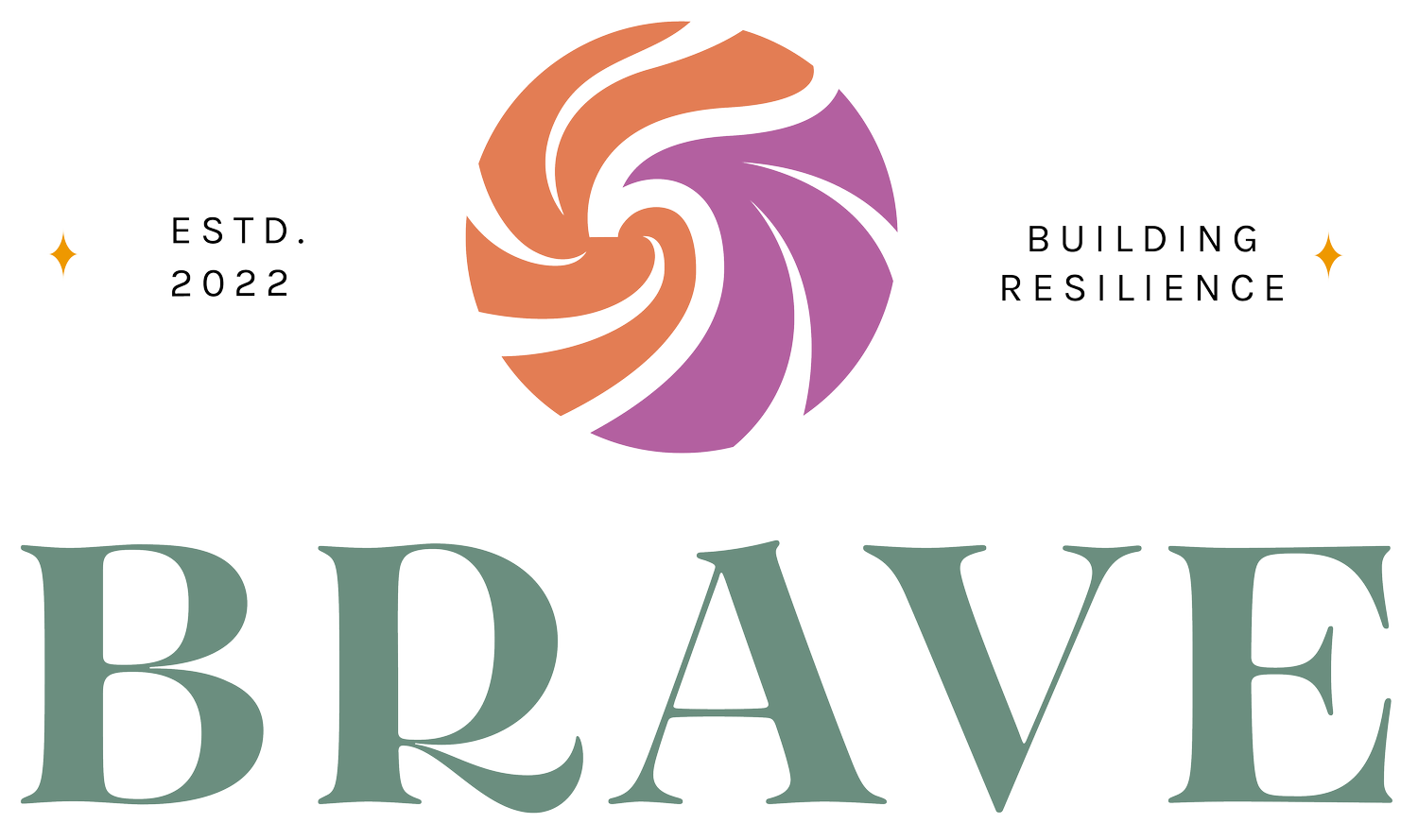Charting a Course to Resilience: Empowering Trauma Therapists in Substance Use Work
Trauma and Substance Use Work Doesn’t Have to be Draining
Addressing trauma and substance use in therapy is of utmost importance, as these issues often intertwine and deeply impact our clients' lives. This work can be challenging for trauma therapists though, and many fear they won’t be able to manage the increased risk for vicarious trauma turning into full blown burnout.
In part 2 of 4 of the podcast and blog series leading up to the 2nd annual Braving the Course event, Betsy and I discuss how us trauma therapists can use tools like Soft Front Strong Back, tailored self-care, and community engagement to reconnect with the healing power of our work.
When we can connect with all the positive aspects of supporting our clients through their trauma histories while empowering them to look at the way they use substances to cope, we are able to navigate these complex cases while still prioritizing and taking care of our own needs.
Keep reading, watch us in action below, or listen in your favorite podcast app!
Breaking the Silence: Opening Up Dialogue on Substance Use
Engaging in conversations about substance use with clients can be daunting for us as trauma therapists. The fear of triggering clients' emotions, managing our own histories and countertransference, or any combination of factors may lead to hesitation.
But get this - by recognizing the importance of addressing substance use openly, we can can break the silence.
When we overcome barriers to these conversations, we get the privilege of engaging in effective conversations that can bring about meaningful change for our clients!
Soft Front, Strong Back: Balancing Openness and Strength
When we bravely choose to meet our clients where they’re at and address the intersection of trauma and substance use, we are faced with the challenge of balancing vulnerability and strength.
Easier said than done, right…?
The Buddhist practice of Soft Front, Strong Back can be a guiding light in finding this equilibrium. Grasping the essence of this practice can be tricky though. It asks us to maintain an open and compassionate approach while staying grounded and resilient.
Say what??
The Soft Front part of this practice is the vulnerability - it’s being open to having our hearts open while at the same time soaking up all the amazing work our clients are doing.
The Strong Back refers to the skills we cultivate to care for ourselves, the support systems we have around us, and our strong training as brave and badass trauma therapists.
You can trust your strong back.
Mindfulness in Substance Use Work: Navigating Complexity through Mindful Practices
One way to put Soft Front Strong Back into practice is through mindfulness practices. By cultivating mindfulness in therapy sessions, trauma therapists can navigate the complexities of substance use work with greater clarity and presence. This can help us connect more deeply with our clients and their experiences within and outside of therapy.
Make sure to listen in around 14 minutes in the video or podcast as I share a tangible tool to strengthen this practice!
Supporting Resilience through Self-Care and Community
Self-care is vital for trauma therapists working with substance use clients, but it’s not necessarily sufficient to help us carry the weight of our work. That’s where the importance of community comes into play - without other trauma therapists to support us at the intersection of trauma and substance use, it’s pretty hard to thrive in this work.
Your self-care is going to look different than mine, and I don’t need to tell you what self-care is. You’re a badass trauma therapist! I also don’t need to remind you that just maybe it would help to shore up some of these practices. 😉
When we strengthen our self-care, and do it with a supportive community, we can can replenish our energy and continue providing compassionate care to our clients.
Addressing Trauma and Substance Use in Therapy Requires Resilience and Empowerment
By breaking the silence, balancing openness and strength, cultivating mindfulness, prioritizing self-care, and building a supportive network, trauma therapists can navigate substance use work with confidence and resilience. That doesn’t mean this is easy though, which is exactly why Betsy and I are hosting our 2nd annual Braving the Course event!
If you're ready to embrace this important work, ensuring that we continue to make a positive impact in the lives of those we serve, join us for Braving the Course on August 28th at 6pmCST.
The second annual round of BtC will help you develop concrete tools and techniques to navigate substance use in trauma therapy. Register now and join us on a journey of learning and growth!
